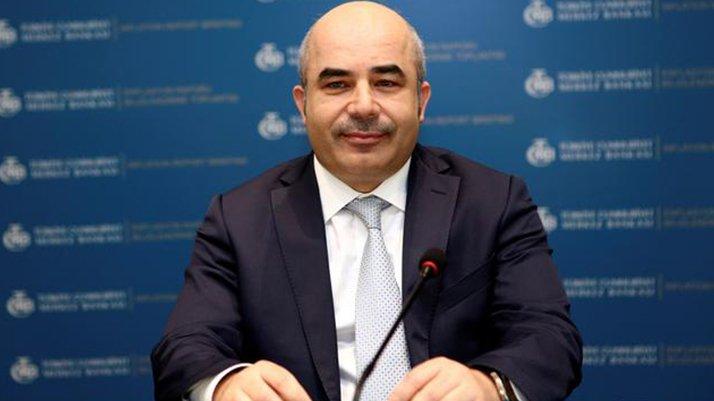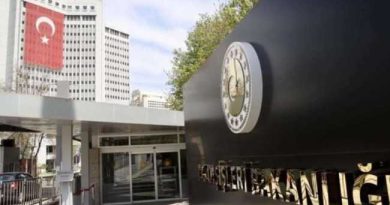Should the Turkish Government Be Blamed for Bombing Terrorist Camps in Northern Iraq?
Following the murder of many solders by the outlawed terrorist organization recently the Turkish jets bombed the Kandil Mountains in northern Iraq, heavily. Several opinion leaders criticized the government for doing so and some others thought Turkey had no other choice to escalate the conflict as well.
Down below is worth readin article that puts in you in the picture for what has been going on in this part of the world
Business Turkey Today
ARTICLE
ByMustafa Akyol
When Turkish jets bombed the Kandil Mountains in northern Iraq on Wednesday night, many peaceniks in Turkey were upset. The target was the military headquarters of the outlawed Kurdistan Workers’ Party, or PKK, the pro-Kurdish terrorist organization, and the clear implication was the end of the would-be “peace process” between the PKK and the Turkish government.
I, too, am unhappy with the re-escalation of conflict in Turkey’s southeast. But unlike some of the peaceniks in question, I do not blame the Turkish government. I rather blame the PKK, whose guerillas have killed some 40 Turkish soldiers in the past month, with assassinations and ambushes. That ruthless and mindless violence of the PKK is what we should really condemn.
A history of violence
Let’s see how we came here. The PKK was founded in the late 1970s, as a die-hard Marxist-Leninist underground group. But it got its real steam in the aftermath of the 1980 coup, by which Turkey’s ruthless generals unleashed an orgy of violence and torture on all political groups, but especially the Kurdish left. The junta was also idiotic enough to pass a law that would ban the Kurdish language throughout the country, making many Kurds feel oppressed and humiliated. Consequently, many Kurdish youngsters joined the PKK to fight for a “free Kurdistan,” and quite a few Kurds felt sympathy for them.
However, the PKK never became the dominant trend among Turkey’s Kurds. First of all, not all Kurds were that nationalist. Second, more traditional ones – both the Islamic pious and the tribes – disliked the PKK’s ultra-leftist agenda. Some Kurds even became state-employed “village guards” to fight against the PKK. In return, the PKK fought against the “traitors” among its own people, massacring whole villages.
Over the years, election results have shown that the support for pro-PKK parties never exceed 6 percent of the votes; while the overall Kurdish vote is estimated to be 15 percent of the population. So, almost two out every three Kurds deny support for the PKK. Most of them, rather, support – guess whom – the incumbent Justice and Development Party, or AKP.
The AKP has been able to gather that support, partly thanks to its ideology and services, but also thanks to the reforms it has realized over the years. Since 2002, many bans on the Kurdish language have been lifted, along with the decades-old “state of emergency” in the Kurdish southeast. Prime Minister Recep Tayyip Erdoğan introduced a new language which defined Turkey as a diverse nation of Turks, Kurds, and many other ethnicities.
Total power
You would expect that all these reforms would make the PKK, which claims to fight for Kurdish rights, happy. Yet, quite the contrary, it made it disturbed and gradually enraged. Because the PKK not only wants rights for Kurds. More than that, it wants total political power for itself. That’s why PKK spokesmen and pro-PKK politicians rejected the AKP government’s Kurdish “opening,” and instead advocated (and even declared) “democratic autonomy” in the southeast.
The word “democratic” here is as meaningful as the one in the Democratic People’s Republic of Korea. The PKK’s political blueprints proudly declare that “the party” would “organize” the whole Kurdish society beginning with “village communes.” Recently, pro-PKK politician Bengi Yıldız claimed that, although they get one third of the Kurdish vote, they represent the whole Kurdish people, for they are “the enlightened cadre” which fights “in the name of the people.”
The PKK, in other words, aims at a totalitarian one-party state in what it envisions as “free Kurdistan.” Hence the liberal democratic reforms of the Turkish government do not mean anything for the organization. The reforms actually threaten the PKK, for they empower the AKP among Kurds, creating a “false consciousness” that curtails the PKK’s totalitarian ambitions.
Even then, the PKK would be tolerable if it remained non-violent. But, despite all the goodwill on the Turkish side, it has decided to terrorize the country once again. So, it is only right to give it the military answer that it deserves.
August 19, 2011
SOURCE: HURRIYET DAILY NEWS
Mustafa Akyol – akyol@mustafaakyol.org




